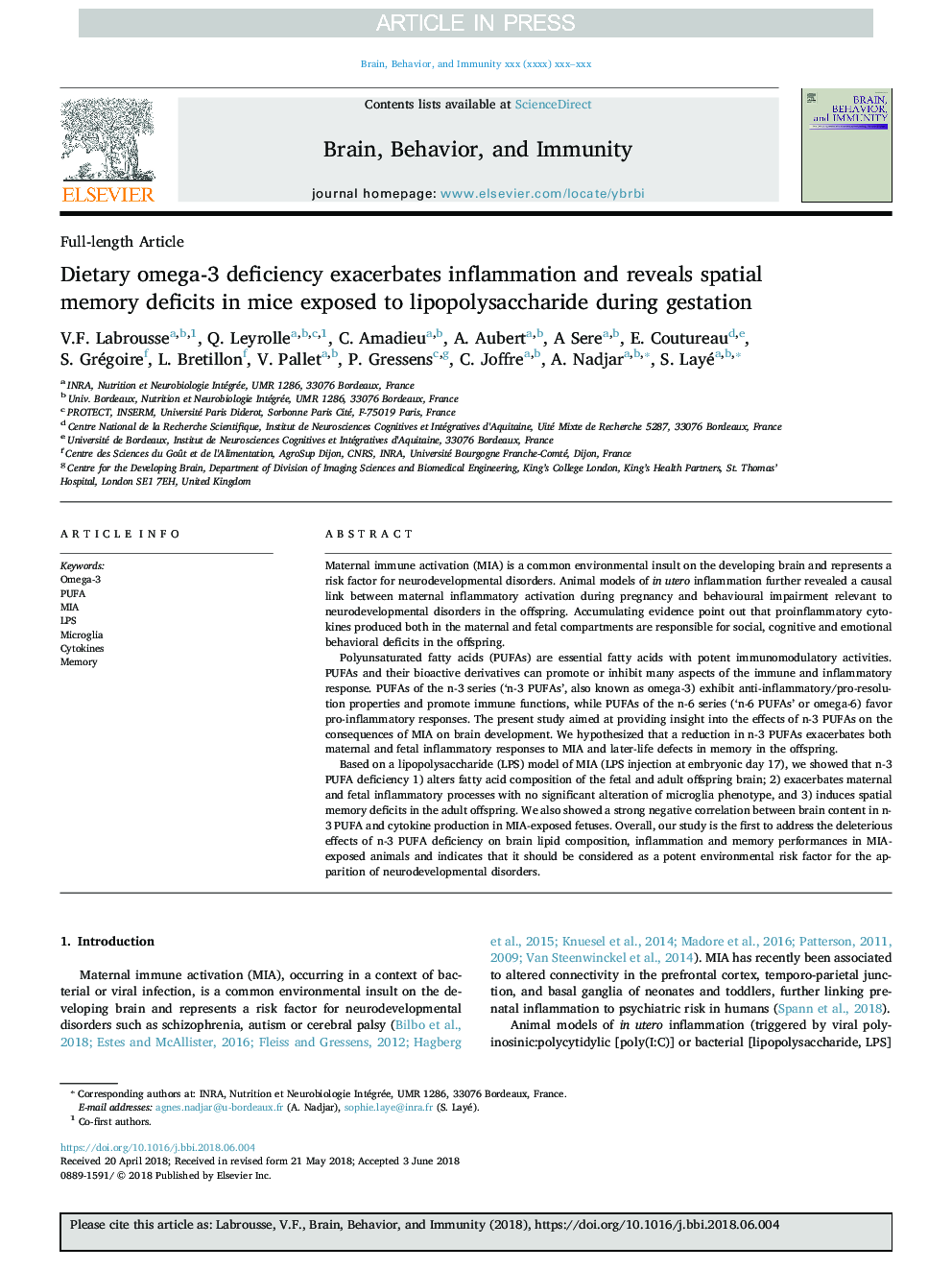| Article ID | Journal | Published Year | Pages | File Type |
|---|---|---|---|---|
| 8960753 | Brain, Behavior, and Immunity | 2018 | 14 Pages |
Abstract
Based on a lipopolysaccharide (LPS) model of MIA (LPS injection at embryonic day 17), we showed that n-3 PUFA deficiency 1) alters fatty acid composition of the fetal and adult offspring brain; 2) exacerbates maternal and fetal inflammatory processes with no significant alteration of microglia phenotype, and 3) induces spatial memory deficits in the adult offspring. We also showed a strong negative correlation between brain content in n-3 PUFA and cytokine production in MIA-exposed fetuses. Overall, our study is the first to address the deleterious effects of n-3 PUFA deficiency on brain lipid composition, inflammation and memory performances in MIA-exposed animals and indicates that it should be considered as a potent environmental risk factor for the apparition of neurodevelopmental disorders.
Related Topics
Life Sciences
Immunology and Microbiology
Immunology
Authors
V.F. Labrousse, Q. Leyrolle, C. Amadieu, A. Aubert, A Sere, E. Coutureau, S. Grégoire, L. Bretillon, V. Pallet, P. Gressens, C. Joffre, A. Nadjar, S. Layé,
